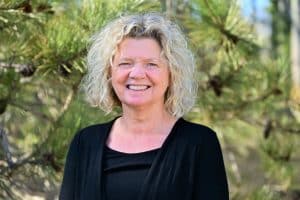Maine launches state’s first Child ACT program

Services provided for at-risk youth and families
Sweetser has introduced Maine’s first Child Assertive Community Treatment program (Child ACT) to offer mental health services to youth who may have experienced gaps in care.
The behavioral health nonprofit’s program, launched earlier this year, provides services for children and youth up to age 21 within a 25-mile radius of its headquarters in Saco, Maine, said Wendy Anders, LCSW, senior director of community-based services at Sweetser.
The initiative was created following Department of Justice Human Rights Division findings that the state was in violation of the Americans with Disabilities Act (ADA) by not providing adequate services to children in need outside of psychiatric hospitals and residential treatment facilities.
To rectify this (violation), Sweetser’s goal is to connect children and their families with a clinician, nurse practitioner, case manager, and youth and family support specialists to identify goals to help improve clients’ functioning in natural support settings in their own community. Child ACT currently has 15 active clients.
“The key is to have an interdisciplinary team, so that all the services that a child and family or caregiver might need are being delivered,” said Anders.
The resources and services provided vary from client to client. It could range from coordinating summer camp applications or finding a local primary care physician, to addressing schooling issues and attending individual education plan (IEP) meetings to support a caregiver.
“We have a family support specialist on the team who has lived experience caring for a youth with some behavioral health and needs,” she said. “They develop a rapport with the child and work closely with the parents or guardians to provide support and guidance on how to manage the child when behaviors are happening.”
The team’s psychiatric nurse practitioner does the initial intake interview and meets with the child and family on at least a monthly basis, if not more, depending on what the family might need, such as medication management for prescriptions, vocational support, crisis stabilization services, or other support.
Anders provides clinical oversight to coordinate care and make sure everyone’s needs are met. They are also close to hiring a youth peer with lived experiences, to help assist young people in the program. Individual, family, and group therapy is also available.
As demand increases, Anders said she anticipates expanding Child ACT to other parts of Maine’s York County, and even beyond. In the near term, Sweetser plans to hire additional behavioral health specialists, to serve as the “eyes and ears” of the clinicians and help keep clients’ plans moving when a clinician is not present.
“They’ll do a lot of coaching and guiding with the child and family” to help reinforce positive behaviors, she said.
To be part of the program, children must either have been recently released from a hospital or emergency room stay, or exhibit a persistent history of time spent in and out of hospitals or crisis units, with evidence that lesser levels of care such as outpatient therapy have been tried.
The program is primarily funded through Maine’s Medicaid program MaineCare, and families must receive benefits from MaineCare to participate.
Another requirement to receive services from Child ACT is that families must be prepared to make the commitment to the high level of care provided, which is available 24/7 if needed from team members on rotation.
“It means that we’re going to be meeting with them at least three times a week, on three separate days during the week,” said Anders. “That’s a minimum, it could be more. We’re going to be part of their life for the next three to six months.”
